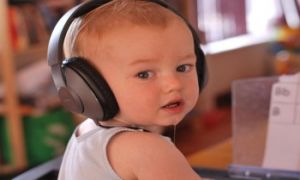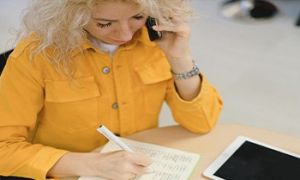

We know many of you are feeling unsure about what will happen to your pay once the Wage Increase Grant ends. This message is here to give you a clear, honest explanation so you know exactly what to expect.
Early childhood work is fast‑paced, relational, and constantly shifting. Good time management isn’t about squeezing more tasks into your day; it’s about creating space to be present with children, reducing overwhelm, and protecting your well-being.
This guide offers simple, educator‑friendly strategies that work in real rooms, with real children, and real staffing realities.
A: Roster changes can feel unsettling, especially when you’ve built routines around a regular day off. Here’s a simple breakdown to help you understand your rights and what usually happens in early childhood settings.
From 2026, every educator covered by the Children’s Services Award will move into a new, simplified classification structure. Instead of navigating 30 different levels, educators will transition into one of eight new Children's Services Employee (CSE) levels based on their qualification, experience, and role responsibilities.
This update doesn’t change the work you do; it simply ensures your classification and minimum pay rate accurately reflect the skills, knowledge, and responsibility you bring to your role. Whether you’re new to the sector, a Certificate III educator, a Diploma‑qualified educator, a room leader, or a director, you’ll be able to clearly see where you fit and what your new minimum rate will be by the end of the five‑year transition.
Below is an easy‑to‑read guide showing how each current classification translates into the new structure.
Provocations are not displays. They are not Pinterest‑perfect tableaus or aesthetic arrangements designed to impress adults. At their core, provocations are intentional invitations, carefully curated materials that nudge children toward exploration, questioning, and meaning‑making.
When we design with purpose, we shift from “setting up activities” to co-constructing possibilities. A well‑designed provocation whispers:
“I wonder what you’ll do with this…”
“What might you discover today…”
This shift honours children as thinkers, researchers, and capable contributors to their learning community.
When children dig, pour, smear, splash, squeeze, and explore, they’re not “making a mess.” They’re building the neural architecture that supports language, self-regulation, creativity, and problem‑solving. Sensory experiences are one of the most powerful, developmentally aligned ways children make sense of their world.
In early childhood education, we talk endlessly about teamwork, collaboration, and shared responsibility. But when the pressure hits, when a child is dysregulated, when an educator is overwhelmed, when the room feels like it’s tipping, the real test of teamwork appears.
And too often, what happens is this: People stand back. They watch. They wait. Sometimes out of uncertainty. Sometimes out of habit. Sometimes because they assume the educator “has it.”
But here’s the truth we need to say out loud: If you see a fellow educator is struggling, step in. Not later. Not when it escalates. Not when someone gets hurt. Now. We are human. We have limits. And we need each other.
Somewhere along the way, our sector slipped into a strange belief: if we don’t take hundreds of photos a week, we’re not doing our job.
But here’s the truth that many educators whisper quietly, often only to each other: We don’t need 200 photos to prove we’re educators.
We never did.
The heart of early childhood education has always been relationships, presence, and professional decision-making, not the size of a digital gallery.
An opinion article for early childhood educators exploring why excessive photo-taking doesn’t define quality practice. Highlights the importance of presence, intentional documentation, and sector-savvy approaches to capturing photos for families, observations, and learning documentation.
A practical, sector‑savvy guide for early childhood educators on understanding, navigating, and reducing workplace gossip (“bitching”). Includes examples, reflection prompts, and strategies to protect your energy and rebuild respectful team culture.
Gossip. Side comments. Whisper networks. The “Did you hear what she said?” moments that ripple through a service and drain the joy out of the day.
Every educator has felt it: the shift in the room when the bitching gets loud.
This isn’t about blaming individuals or shaming the workforce. It’s about understanding why gossip shows up, how it affects us, and what educators can do to protect their energy while still contributing to a respectful, professional culture.
This is a systemic issue, not a personal flaw, and when we name it honestly, we can finally start to shift it.
A practical guide filled with creative, meaningful sustainability ideas for early childhood services. Explore simple, engaging ways to embed environmental responsibility into daily practice, play, and curriculum.
Sustainability in early childhood isn’t just about recycling bins and worm farms—it’s about nurturing a culture of care, curiosity, and responsibility. When children experience sustainable practices woven naturally into their day, they learn that their choices matter and that they are active contributors to their world. Early childhood services are uniquely placed to model these habits through playful, creative, and meaningful experiences that build lifelong environmental awareness. From reimagining loose parts to embedding First Nations perspectives, sustainability becomes a living, breathing part of the curriculum—not an add‑on, but a way of being together.
 Toddlers have a greater understanding of the world around them by this stage. Their cognitive development (also known as intellectual development and thinking skills) continues… Read More
Toddlers have a greater understanding of the world around them by this stage. Their cognitive development (also known as intellectual development and thinking skills) continues… Read More
 Infants begin to develop trust when parents begin to fulfil their needs. Such as changing an infant's nappy when needed, feeding on request and holding… Read More
Infants begin to develop trust when parents begin to fulfil their needs. Such as changing an infant's nappy when needed, feeding on request and holding… Read More
 Beginning at birth the construction of thought processes, such as memory, problem solving, exploration of objects etc, is an important part of an infant’s cognitive… Read More
Beginning at birth the construction of thought processes, such as memory, problem solving, exploration of objects etc, is an important part of an infant’s cognitive… Read More
 Toddlers want to do more on their own and do not like it when you begin to establish limits on their behaviour. Tantrums can become… Read More
Toddlers want to do more on their own and do not like it when you begin to establish limits on their behaviour. Tantrums can become… Read More
 Your preschooler is now able to focus their attention more accurately and is less influenced by distractions. The intensity of questions increase as your child… Read More
Your preschooler is now able to focus their attention more accurately and is less influenced by distractions. The intensity of questions increase as your child… Read More
 John Dewey is often seen as the proponent of learning by doing – rather than learning by passively receiving. He believed that each child was active,… Read More
John Dewey is often seen as the proponent of learning by doing – rather than learning by passively receiving. He believed that each child was active,… Read More
 Toddler advance and gains new skills in Gross Motor Development milestones achieved throughout earlier years. Co-ordination and challenges that could not be performed before such… Read More
Toddler advance and gains new skills in Gross Motor Development milestones achieved throughout earlier years. Co-ordination and challenges that could not be performed before such… Read More
 Erik Erikson developed a psychosocial theory to understand how we each develop our identities through eight stages of psychosocial development from infancy to adulthood. The… Read More
Erik Erikson developed a psychosocial theory to understand how we each develop our identities through eight stages of psychosocial development from infancy to adulthood. The… Read More
 At this point preschoolers begin to interact effectively with others. Play becomes more innovative and organized and “boyfriend” or “girlfriend” begins to emerge. Preschoolers have… Read More
At this point preschoolers begin to interact effectively with others. Play becomes more innovative and organized and “boyfriend” or “girlfriend” begins to emerge. Preschoolers have… Read More
 From now, babies begin to identify and respond to their own feelings, understanding other's feelings & needs and interact positively with others. A baby's social and… Read More
From now, babies begin to identify and respond to their own feelings, understanding other's feelings & needs and interact positively with others. A baby's social and… Read More

Montessori stressed that children learn best by using their senses and pursuing their interests, rather...
See more...
Tremendous advances in brain imaging technology over the last ten years have led to a...
See more...
In early childhood education, behaviour is never just “bad” it’s a message. Whether it’s a...
See more...© 2009-2025 Aussie Childcare Network Pty Ltd. All Rights Reserved.

